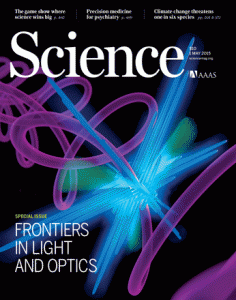After learning of the possibly devastating affects of scientific fraud in Tuesday’s class I was faced with a question. Why does scientific fraud happen? An article written by Adam Marcus and Ivan Oransky in the New York Times digs into the background of some of the largest scientific frauds of the century. On average a scientific publication is retract ed every day due to misconduct. A whole two percent of scientists admit to manipulating their data to reflect the results that they wanted. Now that two percent may not seem like a lot, but just remember that millions of scientific publications are posted by researchers a year. If you still are not concerned with those numbers, just know that these publications are not just in some smaller local publications, articles have been pulled from the world’s best journals including The Lancet, Science and Nature.
ed every day due to misconduct. A whole two percent of scientists admit to manipulating their data to reflect the results that they wanted. Now that two percent may not seem like a lot, but just remember that millions of scientific publications are posted by researchers a year. If you still are not concerned with those numbers, just know that these publications are not just in some smaller local publications, articles have been pulled from the world’s best journals including The Lancet, Science and Nature.
Unfortunately, as the stakes reliant on this publication get higher, so do the problems with misconduct. A paper was published in December of 2015 with the claim that one’s opinion on the topic of same-sex marriage could be changed after having a conversation with a gay person for 20 minutes. When the article was published skeptics believed that the results appeared too good to be true and in fact they were right. The retraction was requested by Donald P. Green, a Columbia political scientist, after his co-author Micheal J. LaCour failed to produce raw data. In this case, the topic was bursting with the opportunity for a lot of press with an relevant and popular topic, and attention-grabbing research, not to mention being published in a top news journal. It was the perfect formula for a success, if the science was done properly, however in this case and in many others, it was not.
Now while one may be forced to jump to the conclusion these so-called distinguished scholars are all in the blame there is another factor that is attributing to this pattern of dishonestly and misconduct. Some believe that the subject of Science and the non-stop pressure to have the news-worthy breakthrough is what causes trained professionals to venture down this road of fraud. The entire scientific community thrives off of “the next great idea” and one of the most daunting things that scientists face in publication is their impact factor. This is referred to how likely the studies conducted in a specific study are likely to be referenced in future publications. Citations are the few measuring factor in this equation so the more that one article gets the more impactful it is.
One of the most shocking facts I discovered while researching scientific fraud is that the top journals that I mentioned earlier in my post like Nature and Science actually retract more papers despite having higher impact factors than other journals. A possible theory to explain this attempts to correlate the prominent-like factors that these journals exhibit with the more precise examination of the articles due to the assumed increased awareness in its readers. So in short, they believe that the typical reader for these types of journals are reading the articles more thoroughly than a leisurely reader therefore increasing the likelihood of identifying mistakes. Another hypothesis is that due to the desire for journals to stay on top of hot/relevant stories the turn around for publications is under a much larger time crunch. As they want to publish the pieces while they are still relevant shortcuts in editing and proofreading may be taken. 

From whichever few you look at it from, fraud and misconduct is a huge problem in the scientific community. Articles, journals, even scientists are being corrupted by the overbearing incentives to publish the next best thing. Unless there is a change in that process it seems as if journals will continue to retract papers for a long time.

I agree with you in that scientific fraud is a huge problem. I actually looked into one of the cases you mentioned- fraud in The Lancet. This publication presented a study by Dr. Andrew Wakefield, whose case showed a correlation between vaccines and autism. After publication, many scientists attempted to recreate his study and were unsuccessful. This is a huge red flag because replicability is a cornerstone of science. It turns out that Wakefield’s study was fraudulent. He had outside financial incentives to misconstrue his findings. If anything, this case shows how utterly devastating scientific fraud can be. Many people and their children remain in danger unvaccinated because of a single case of fraud.